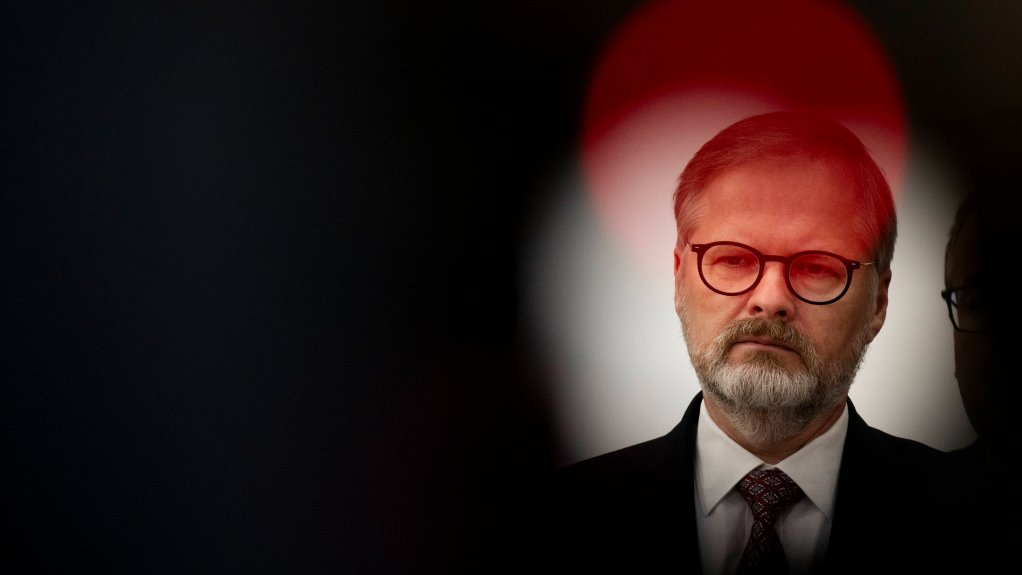The Czech Republic has announced plans to tighten its immigration controls significantly. Although the actual numbers of migrants and asylum seekers in the country is relatively low.
Czech Prime Minister Petr Fiala said he plans to introduce stricter asylum and migration laws to deter potential migrants from coming to the eastern European nation.
The proposed legislation would include faster deportation procedures, more security checks, and an acceleration of asylum procedures.
"Our goal is clear: to prevent illegal migration," Fiala said, stressing the need for tougher measures at both the national and European levels.

Much ado about nothing?
The move, however, is seen by some anaylsts as largely politically motivated: The number of people seeking asylum in the Czech Republic is comparatively low; according to the Interior Ministry, less than 1,300 people submitted an application in all of 2024, marking an eight percent decline compared to the previous year.
Faila's announcement, however, comes as the Czech Republic is gearing up to hold parliamentary elections later in the year.
His center-right government could be unseated in that vote, as polls suggest a strong lead for the right-wing populist opposition party ANO.

Creating 'international' airports among raft of measures
According to the Czech Interior Ministry, authorities will also monitor more closely the whereabouts of asylum seekers in the country to ensure that they don't abscond in case their asylum claim is rejected.
The draft law also says that asylum applicants who display "problematic behavior" could face severe restrictions on things like state benefits and health insurance, though it doesn't define to what exactly this refers.
The Czech government says it also intends to establish transit zones at international airports in the country like in Prague and Brno and change the territorial definition of such airports in a way that they cannot legally be considered entry points into Czech territory.
Read AlsoEastern Europe: Labor migration is on the rise
Overall push to limit migration across EU
Fiala's comments come as the EU prepares to introduce new regulation to also crack down on irregular immigration across the bloc.

The EU Commission plans to introduce changes in particular to its migrant return system by making deportation orders more binding across borders and the pre-deportation detention of certain individuals far easier to enact.
The European Union said it will also explore options of creating return hubs for failed asylum seekers outside of EU territory, though the practicalities of this are yet to be unveiled.
All eyes on the Czech-German border
Elsewhere in Europe, national governments are also increasingly upping their oversight of national borders, as migration remains one of the key political issues. In certain instances, this might also affect Czech policy directly.
Earlier this week, Germany announced plans to possibly close off its borders by declaring a state of emergency, once the incoming administration is sworn into power. This could allow Germany, say the politicians, to effectively turn away potential asylum seekers before they have a chance to lodge a claim on German territory.
Certain neighboring EU countries such as Poland and Austria have already expressed their opposition to this plan, saying that Germany's explanation that asylum seekers should apply for protection before they reach Germany — an EU country that is only surrounded by member states plus Switzerland — was insufficient and in breach of EU law.
Read AlsoGermany: What does the future hold for migrants after announcement of new grand coalition?
Partners in crime
The Czech Republic, however, has so far only stated that it will play by the rules if this scenario comes to fruition — without clarifying, however, what that might entail:
"If Germany refuses to allow foreigners to enter its territory at the borders with the Czech Republic, we will act in accordance with the applicable legislation," a spokeswoman for the interior ministry told the dpa news agency.
The Czech authorities only added that acting "in accordance with the applicable legislation" was dependant on what legal status each potential asylum seeker in the border region already might have, and stressed that the cooperation with German authorities to date had been "outstanding."
Meanwhile, the Czech government also said that it might reserve the right to resort to further border checks on its own borders if migrant numbers were to increase in the future.
Read AlsoPolish man sues Germany over border checks
with dpa
